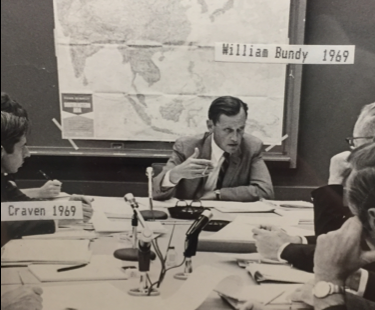Wargames and Crisis Simulations
Wargames provide rich data for testing individual-level theory on elite research subjects. They introduce human interaction to the study of crisis decision-making—human fallibility, miscommunication, emotions, hubris, pride, and reputations that color decision-making in group settings. In “Wargaming for International Relations Research,” published in the European Journal of International Relations, colleagues and I explore the value of this method and develop a wargaming research agenda.
In “Would U.S. Leaders Push the Button? Wargames and the Sources of Nuclear Restraint,” published in International Security, I use a sample of twenty-six wargames conducted at MIT and the Pentagon with U.S. policymaker players between 1958 and 1972 to test theories on why nuclear weapons have not been used since 1945. The results show that when deterrence was not operating, elite players were still reluctant to cross the nuclear threshold in wargames for reputational and practical reasons. Precedent and ethical aversions to using nuclear weapons were less common. The piece is paired with a substantial online appendix of archival documents as part of an effort to promote qualitative research transparency and encourage other scholars to leverage wargames data.


